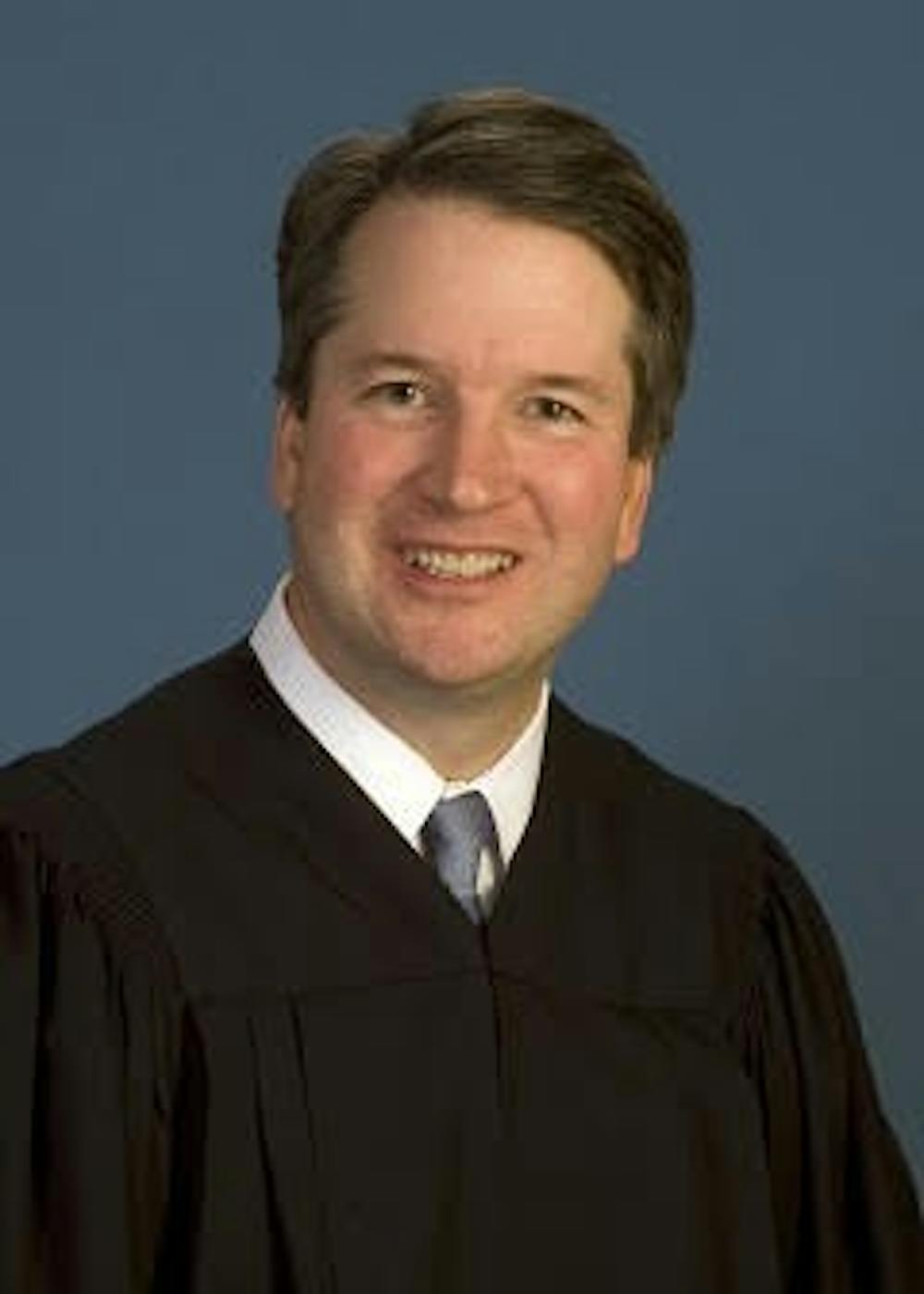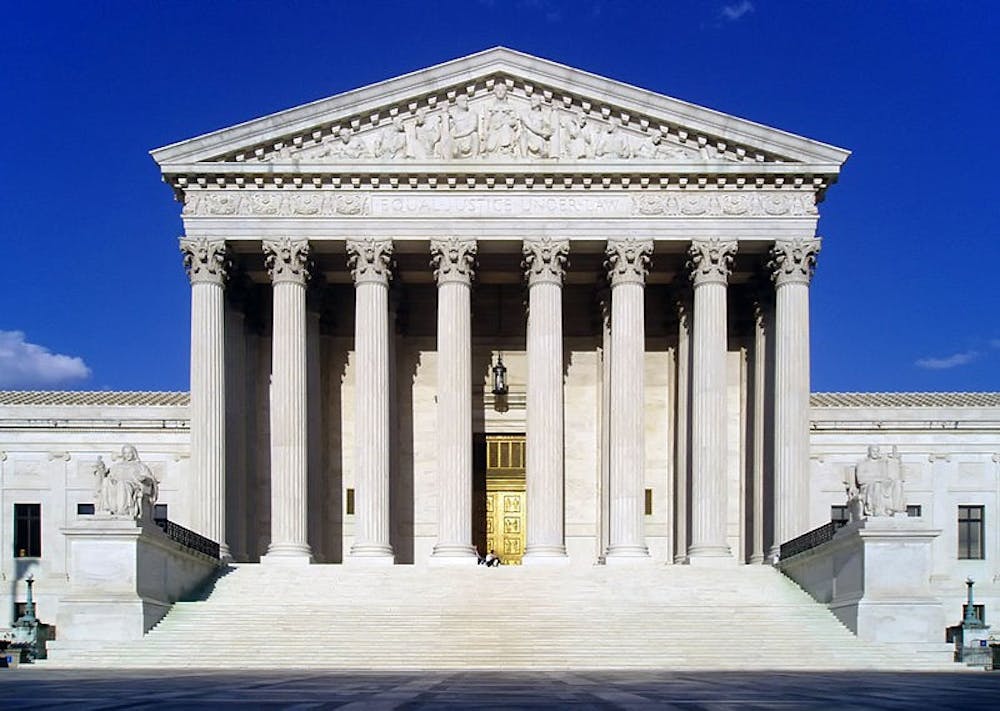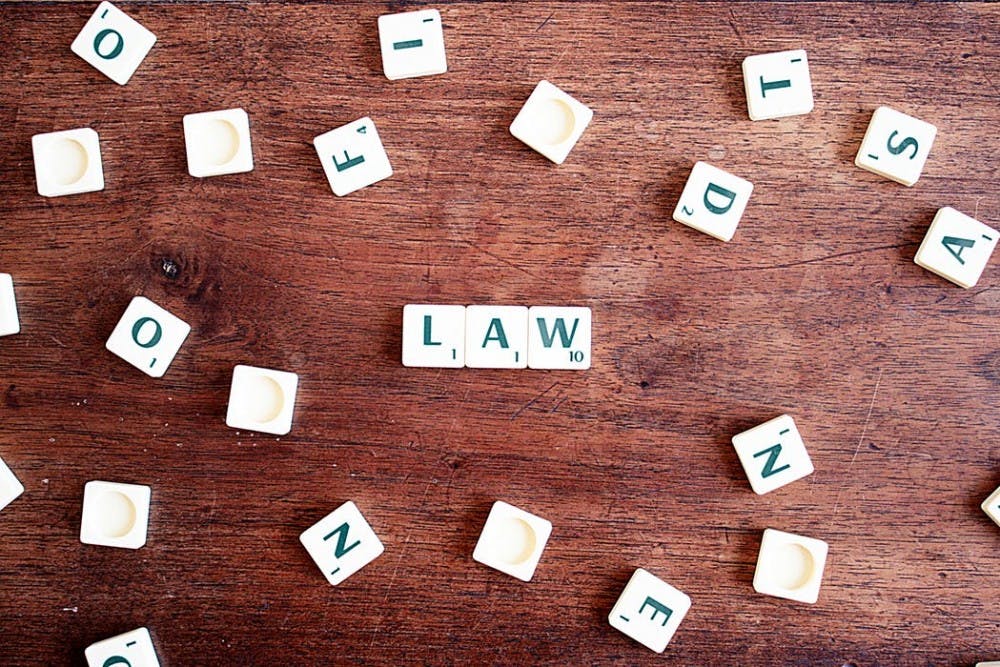On Wednesday, June 27, 2018, Justice Anthony Kennedy announced his retirement from the Supreme Court, effective July 31, 2018. On Monday, July 9, President Donald Trump nominated Brett Kavanaugh to take Kennedy’s place.
On the same day, New Jersey Senator Cory Booker released a statement announcing his opposition to Kavanaugh’s nomination. Booker said he was concerned about Kavanaugh’s views regarding Roe v. Wade, the Affordable Care Act, and the rights of workers to organize for better wages and working conditions.
Because of this, Booker urged young people to oppose Kavanaugh's nomination to the Court.
In a July 20 statement to The Daily Princetonian, Booker wrote, “This is not a partisan moment or a political moment — it is a moral moment. And for the millions of college students across the country, the stakes of this moment are incredibly high. If you are a person who believes in your individual freedoms — to control your own body, to access affordable health care, to marry who you love — do not be silent.”
Booker continued to state that the greatest historical movements were led by youth, referring to the Freedom Riders, Tiananmen Square, and the current student activism in the United States regarding gun violence.
“Stand up with us, fight with us, work with us, struggle with us. Join with others and raise your voices in a chorus of conviction that will ultimately help us stop this Supreme Court pick. You have the power to influence the outcome of this moment in our history,” he wrote.
In his July 9 statement against the nomination, Booker argued that a Supreme Court with Kavanaugh as a justice could lead to a conflict of interest regarding the ongoing investigation into Russian interference in the 2016 U.S. presidential elections.
“The fact that Judge Kavanaugh has a long-established view that a President should not be subject to civil litigation or criminal investigation while in office means that President Trump has just nominated a justice who has already reached conclusions on these serious questions,” Booker said. “That should raise enormous red flags.”

In June, Booker gave the Class Day address for the Class of 2018.
In a law review article from 2009, Kavanaugh advocated that civil suits and criminal investigations be suspended while a president is in office. Supporters of the judge have pointed out that Kavanaugh was indicating his view of what was good policy, noting that an investigation distracts the President from important political issues. Kavanaugh's supporters argued he was not indicating his view of what was legally permissible.
However, comments that Kavanaugh made in 1998 suggest he believes that only Congress should be permitted to investigate a sitting president.


Booker wrote to Kavanaugh on July 20 to request he recuse himself from any cases related to the investigation, in response to a 2016 video where Kavanaugh expressed support for overturning the Supreme Court ruling in favor of the independent counsel statute.
Sociology and Wilson School professor Kim Lane Scheppele said she does not think the investigation of President Trump’s campaign prevents him from naming a nominee. However, she said there would be a serious question of whether Kavanaugh and Gorsuch should recuse themselves in a case related to the Russia probe.
Opinions on campus
Princeton College Democrats president Sebastian Quiroz ’20 said he is concerned about Kavanaugh’s positions on women’s reproductive rights.
Quiroz is also a member of the ‘Prince’ Editorial Board.
If confirmation hearings stretch into the fall semester, Quiroz said College Democrats will consider calling senators to take action.
Quiroz said he does not believe in denying President Trump the “prerogative” to appoint a Supreme Court justice but that he is also against “the Senate just signing a blank check on whatever the President decides.”
In the long term, Quiroz said, Princeton College Democrats will focus on winning midterm elections and, in 2020, the presidency, so that the Democratic Party can regain the position to impact the Supreme Court.
College Republicans did not respond to the ‘Prince’ requests for comment by the time of this article’s publication.
In an email statement to the ‘Prince,’ politics professor and well-known conservative scholar Robert George wrote that Kavanaugh is more of a “textualist” and “originalist” than Kennedy. George said this means Kavanaugh will not advance progressive social causes in the name of the constitution.
George described Kavanaugh as a “mainstream conservative jurist —very much in the mode of Neil Gorsuch and John Roberts.”
According to George, many progressives worry that Kavanaugh will help the Supreme Court rule in favor of conservative social causes. George questioned whether Kavanaugh will provide a critical fifth vote to reverse precedents on issues such as abortion and same-sex marriage, as George said he views it as “almost certain” that Kavanaugh would have ruled against abortion and same-sex marriage had he been on the Court when the initial cases were decided.
Sociology and Wilson School professor Kim Lane Scheppele said that Kavanaugh is “a solidly Republican judge and he would have been on the shortlist of any Republican president.”
While many have discussed Kavanaugh’s views on social issues, Scheppele said she is most concerned by his rulings regarding presidential power in the area of war and security, mentioning Kavanaugh’s record serving on the D.C. Circuit Court of Appeals, which handled the Guantanamo cases.
“Kavanaugh has kind of led the wing of the D.C. Circuit that has systematically gutted the protections that the Supreme Court gave to detainees in Guantanamo,” Scheppele explained.
Scheppele noted that several judges in the D.C. Circuit regularly rejected international law in order to approve the actions of military commissions, as these judges supported expansive powers for the commander-in-chief during a national security threat. The executive branch can easily declare national security threats, Scheppele explained, and she is worried this would enable the President to violate civil liberties.
“What if Trump said, ‘we’ve heard that there is about to be a terrorist attack and so therefore we need to go onto a war footing, we need to do mass searches of homes, whatever civil liberties violations you need to do’?” Scheppele said.
According to Scheppele, Kavanaugh is the sort of judge who would approve drastic measures in what the President deems to be urgent situations.
While U.S. courts have often not deferred to international law, Kavanaugh’s rejection of international law was especially extreme, according to Scheppele, as he affirmed the government’s decision to broaden the scope of the crimes that military commissions at Guantanamo could prosecute to include crimes that are not defined as war crimes by international law.
“He’s deferential to executive power. International law reigns in executives so if as a judge he wouldn’t acknowledge that international law is a separate constraint on the President, then the President can do whatever,” Scheppele said. “So that’s the real concern. That’s the area where I think he’s out of the mainstream Republican choice.”
Scheppele said it is improbable that the Democrats will win the fight against the nomination. She noted that the Republicans have prioritized the court in their campaigns for decades, while Democrats have not.
A politicized court
Scheppele said she is troubled by the highly polarized nature of the current system of appointing Supreme Court justices, which she says started during the presidency of Reagan.
“Every time a case comes down people say is it five to four, is it liberals against conservatives? And that just makes it look like it’s purely a political decision and has no law in it at all,” Scheppele said.
George also commented on the polarization of the court.
“The two major political parties are now ideologically monolithic (or something close to it), and the Supreme Court is now composed of conservative Republicans and liberal (or progressive) Democrats,” George wrote.
George said he thinks that the Democratic minority will rarely get the fifth vote in big, highly publicized cases.
George traced the court’s polarization back to the blocking of the confirmation of Robert Bork during Reagan’s presidency.
“Confirmation battles have been extremely bitter when a president is nominating someone who might shift the ideological or philosophical balance on the Court,” George explained. “People on both sides will rant about the sins of those on the other side while forgetting their own transgressions. People on both sides will use against those on the other whatever weapons are to hand. It is not a pretty sight.”

Scheppele, who studies courts in other countries, explained that one problem with the system in the United States is that the Constitution is almost impossible to amend. Because of this, political movements have to gain control of the court to reverse a court decision.
The other issue, according to Scheppele, is that there is no regular rotation of judgeship. Scheppele said she was taught that life tenure preserves the independence of the court. While the system may preserve the independence of individual judges, she argued that it makes the court “completely politically dependent.” Each judge serves as the lasting influence of the President who appointed them, long after that President has left political office.
Scheppele explained that in other countries the judges on the high court usually have nine- or twelve-year fixed terms. The judges cannot wait until a president of their party is in office before retiring, as is possible in the United States.
The United Kingdom now uses a professional commission of experts to appoint judges to its Supreme Court, added Scheppele, and in Germany the court maintains a political balance.
The German Federal Constitutional Court has 16 judges, divided into two panels of eight. Scheppele explained that there is an understanding that, in each panel, four judges are appointed from the right, and four judges are appointed from the left. An even number of judges is required to break a tie. This makes each panel “automatically deadlocked” so that every case requires a person to be persuaded, and decisions are largely moderate, according to Scheppele.
Scheppele said she thinks most people in the United States would agree that the Supreme Court is a partisan institution. She said that's not how it should be.
“[Justices] should be doing law, not politics,” Scheppele said.








